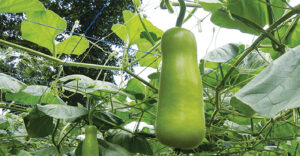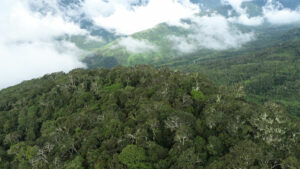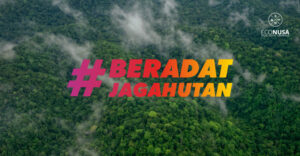
Since its initial outbreak in Indonesia early March 2020, there has so far no clue signalling the diminution or even end of the COVID-19 pandemic. Contrariwise, the statistic figure of contagion has been on the rise day by day, including that of in the eastern parts of Indonesia.
Data from kawalcovid19.id show that 218,382 peoples are positively infected by COVID-19 per 13 September 2020 across from Indonesia. Ironically, some 8,723 passed away. The outbreak has spread evenly across 34 provinces in Indonesia, including West Papua Province. West Papua Covid-19 Task Force (Satuan Gugus Tugas Covid-19 Papua Barat) records as per 13 September 2020 there have been 1,828 suspects and 1,149 positive cases and 41 died, including dr. Titus Taba, the chairman of Indonesian Medical Association (IDI) of West Papua.
A single party measure could barely tackle the alarming pandemic with effective measure. Even the government will not have the capacity to curb the plague without public participation and awareness to comply with health protocol in discipline manner. Ideally, it needs collective and active participation including the elements of community. However, COVID-19 measures in Indonesia appear to be questionable as it has not worked out well yet.
“The IDR500,000 penalty for any violation of mask does not give any deterrent effect,” said Rezky, a driver of rent car business in Sorong City.
Rezky was dismayed upon observing the poor responses of local people to COVID-19. As to him, people in Sorong City tends to ignore the pandemic. Health protocol assigned by the local government has failed to raise their awareness to collectively curb the contagion. They perform daily activities as if nothing happens. Many remain wandering around without wearing masks and making physical distancing despite the COVID-19 cases in Sorong. The West Papua Province’s Health Office website shows that as per 13 September 2020 there have been 535 positive cases at Sorong City that are deemed the highest in West Papua. Meanwhile, in Raja Ampat as the prominent tourism destination, there have been 52 positive cases as per 13 September 2020. It rose by 33 as from 19 cases on 11 September 2020.
As a result, the outbreak effect came to real as happened to other cities in Indonesia. A lot of workers are laid off. Tourism business is closed down. Logistic transportation has limited distribution areas. A resource person at Sorong Airport, Domine Eduard Osok, informed that Susi Air has even closed down its route from and to Bintuni due to social restriction.

As part of the measures to curb COVID-19 impact, EcoNusa Foundation as a non-profit organization focusing on natural resources and indigenous people management at eastern Indonesia attempts to provide contribution to help ease the pandemic aftereffects. The foundation has EcoNusa Covid-19 Response initiative in collaboration with Perjampat (Raja Ampat Local Business and Livelihood Association) to provide health supports, food security and empowerment to ecotourism business owners who are hampered by the absence of tourists during the pandemic. Besides, the activity aims to reach coastal communities living far from health access and downtown at Raja Ampat Regency.
Read also: “This kind of activity has never existed in East Arefi Village”
In addition to Raja Ampat, EcoNusa Covid-19 Response is also done at Maluku and North Maluku. In North Maluku, technically this activity is cooperating with PakaTiva Association. The organization attempts to campaign healthy life with protective health gear (APD) supports to medical workers. It will also provide assistance through organic farming training to build local market system so as to boost up local economy.

Embarking on 10 September 2020, the team has sailed across Raja Ampat islands on Kurabese, a 23-meter live on board ship. The expedition team consists of 12 persons consisting of volunteers in agriculture and health which will sail to 13 vicinities in Raja Ampat, namely Arefi, Saukabu, Selpele, Arborek, Sawingrai, Kri, Sapokren, Waisai, Urbinasopen, Mayaifun, Kaliam, Solol, and Amdui.
As to Cory Adriani Kapa, the project leader of EcoNusa Covid-19 Response, the 15-day trip up to 25 September 2020 has three major agendas.
First, health and COVID-19-related health protocol socialization. EcoNusa will hand over dozens of protective health gear (APD), thousands of masks, hundreds of medical masks, hundreds of face shields and dozens of rapid test kits, T-shirts, and COVID-19 preventive manual book for the villagers.
Second, organic farming education to boost up food resilience. The team will distribute 3,500 seeds, 645 packs of fertilizers and 100 farming tools such as hoe, handcart, sprayer, and the likes.
Third, socialization and assistance on ecotourism empowerment through collaboration with Raja Ampat Homestay Association. This is expectedly to prepare ecotourism business providers when the tourism spots are opened with the new normal concept. The assistances are 300 units of sago-leaves roof and 250 units of wall to recondition the damaged homestay at six regions in collaboration with Raja Ampat Homestay Association.

“The EcoNusa Covid-19 Response is expected to become one of EcoNusa efforts to educate indigenous community to remain alert. The activities could hopefully help their food resilience,” added Cory before the expedition team moved to Usahamina Port to sail with Kurabesi.
EcoNusa Covid-19 Response Raja Ampat team:
EcoNusa Foundation Team: Bustar Maitar (CEO EcoNusa Foundation), Cory Adriani Kapa (Project Leader), Yuliastuti (Project Assistant), Samuel Wospakrik (Program Officer), Matheos Yacobus Rayar (Field Associate) dan Novie Sartyawan (Producer).
Documentation Team: Muhammad Syukron Makmun (Writer), Mohamad Chafiz (Videographer).
Logistic and General Volunteer: Marco Maliq Hafiedz (Volunteer )
Farming and Livelihood Team: Jemima Desi Wamna (Farming Volunteer), Utreks Hembring (Farming Volunteer).
Health Volunteer: dr. Lalu Rahmat Yuanda Aji (Health Volunteer), Destyana (Health Volunteer)
Editor: Leo Wahyudi







